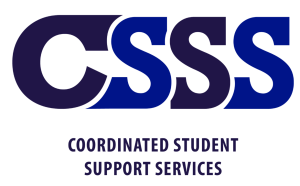Maintaining Program Integrity and Avoiding Overclaims

Maintaining program integrity and avoiding overclaims
by Susan Petersen, Consultant, Nutrition Services
from the Spring 1997 issue of Child Caring; updated 2002
Participation in the Child and Adult Care Food Program (CACFP) provides many benefits to child and adult care centers, child care home providers and day care home sponsoring organizations. These benefits are primarily in the form of money that is distributed to centers and homes as reimbursement for nutritious meals served to eligible participants.
Even though Nebraska is one of the smaller states in terms of the amount of funds distributed nationally, the total dollar figures are still somewhat overwhelming.
In fiscal year 1996, the Nebraska Department of Education (NDE) distributed approximately $4.8 million in reimbursement to child and adult care centers. The amount distributed to child care home providers through sponsoring organizations was approximately $16.9 million. Nebraska’s eight sponsors of family day care homes received approximately $2 million in administrative funds for training and monitoring purposes.
 |
Read more about the CACFP Integrity Initiative in Nebraska |
It’s All Tax Money
Where does this money come from? It comes from every taxpaying U.S. citizen – meaning you and me. And since this is tax money, every recipient of these dollars has to be accountable for how those funds are used and accounted for.
In recent years, Congress has been examining ways to cut back on a variety of expenses in all aspects of government. Some of those cutbacks have already affected the CACFP in an attempt to reduce government expenditures.
As part of the Welfare Reform Act, child care centers are no longer eligible to claim a “fourth meal” under the CACFP. This change went into effect immediately upon the signature of the President in August 1996.
In July 1997 we saw many changes in the way child care home providers receive reimbursement under the CACFP, as an effort by the federal government to cut $2.2 billion in the CACFP over a five year period. This change was to a two-tiered system of reimbursement from the flat-rate reimbursement that had been in effect.
Since many of the CACFP dollars are distributed to private for-profit businesses and individuals operating family child care homes, this opens up the CACFP to closer scrutiny to account for how these funds are used. Every tax-paying citizen should have the assurance that the government is spending their hard-earned tax dollars appropriately.
Audits & Reviews Conducted
 |
Among the methods to assure that these CACFP tax dollars are used as the government intended are compliance reviews conducted by Nutrition Services staff and audits of private for-profit centers by contracted auditors. Federal regulations require the NDE Nutrition Services office to monitor the CACFP in all centers on a regular basis. Nutrition Services reviews at least one-third of all institutions each fiscal year. |
An institution is each organization that has an approved agreement with NDE Nutrition Services. In addition, Nutrition Services provides monthly training for new centers and new personnel, on-site technical assistance to new centers or sponsors and a review of records of new centers to assure that program requirements are being met. In addition, Nutrition Services follows up on complaints received from other agencies or members of the public regarding questions of impropriety in the operation of the CACFP.
Audits have become an annual event for many private for-profit (“Title XX”) centers participating in the CACFP. Centers that receive $25,000 or more in CACFP funds during a fiscal year are audited for that time period.
Audits and compliance reviews are conducted with the intent to assure that program integrity is maintained. This means that reviewers and auditors are reviewing local programs for compliance with CACFP regulations and that fraud is not taking place. In some situations, over claims are the result of “honest mistakes,” but the result is the same – funds that were accepted in error must be repaid to the government.
Over claims are generally due to errors on Income Eligibility Forms, errors in claiming meals, failure to meet the 25% Title XX eligibility requirement and mathematical errors. In the majority of cases, centers have made arrangements to repay these funds to the state. In other situations, centers have ceased operations while still owing the state a significant amount of money. When necessary, these cases are turned over to a collection agency.
If the results of audits or compliance reviews indicate that CACFP funds are being used improperly, whether it be intentional or due to the center’s inability to comply with regulations, the result can be the same: the center can be declared seriously deficient and terminated from the CACFP. Being determined as seriously deficient prohibits the center or any of its officers or employees from participating in the CACFP not only in Nebraska, but nationwide. Termination is a last resort, only after an institution to failed to correct deficiencies.
Seriously Deficient
According to federal regulations, serious deficiencies include, but are not limited to:
-
noncompliance with the applicable bid procedures and contract requirements of federal child nutrition program regulations
-
the submission of false information to the state agency
-
failure to return to the state agency any advance payments which exceeded the amount earned for serving eligible meals, or failure to return disallowed start-up payments
-
failure to maintain adequate records
-
failure to adjust meal orders to conform to variations in the number of participants
-
the claiming of program payments for meals not served to participants
-
service of a significant number of meals which did not include required quantities of all meal components
-
continued use of food service management companies that are in violation of health codes
-
failure of a sponsoring organization to disburse payments to its facilities in accordance with its management plan.
-
a history of administrative of financial mismanagement in any federal child nutrition program and
-
the claiming of program payment for meals served by a proprietary Title XIX or Title XX center during a calendar month in which less than 25 per cent of enrolled participants were Title XIX or Title XX beneficiaries.
Have Questions? Call Us!
There really is no excuse for any organization participating in the CACFP to incur large over claims as long as they are following the regulations and terms of the agreement signed with the Nebraska Department of Education. Remember that when you sign that agreement, you are responsible for complying with federal regulations and assuring that funds are properly accounted for and that all records required by the program are maintained.

The CACFP is a complex program which requires knowledge and training. If you are responsible for the CACFP, you owe it to yourself, your organization and the taxpayers to administer the program correctly.
Nutrition Services requires that every director or authorized representative be trained by Nutrition Services in program compliance. Workshops are held monthly.
If you have questions regarding the CACFP or if you or a member of your staff needs training, call our office toll-free at (800) 731-2233 or at (402) 471-2488. This is your only assurance that you will receive accurate and up-to-date information regarding the program. Don’t rely on the information that your day care colleague across town may tell you. Remember that you are ultimately responsible for the administration of the CACFP in your center.





